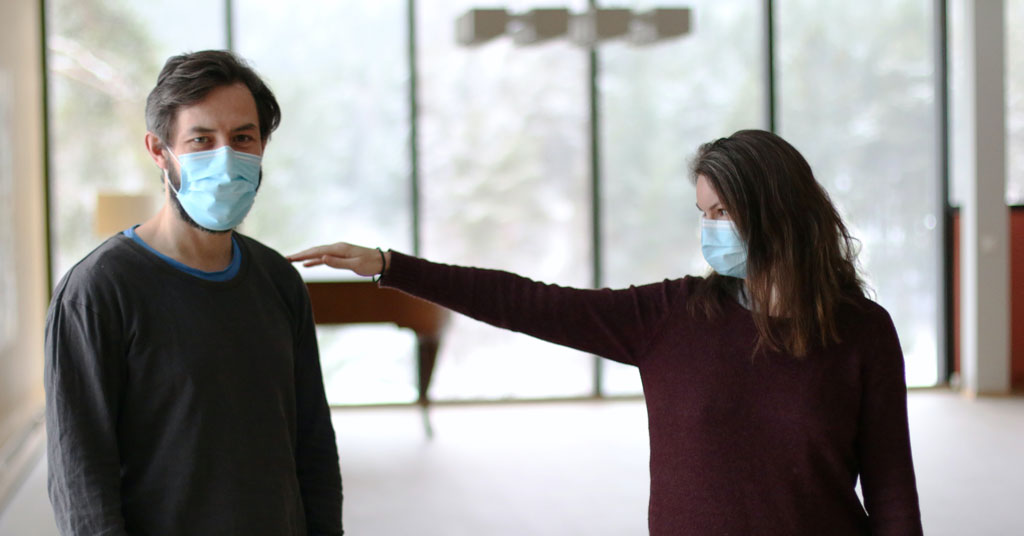Sticky Situation. Which changes from the pandemic will stick?

As I noted in my previous article, predictions of how the pandemic will change business permanently are inconsistent and often not particularly helpful. Yet we know that some of the changes forced upon all of us will have a long-lasting impact on how consumers will behave. That will change how business is conducted, and therefore how the franchise business model will be executed.
I discussed some trends that were underway before the crisis and how their adoption has been accelerated because of the crisis. As an example, many companies are now saying they may allow employees to work 2 to 3 days a week remotely after the crisis. How much less commuting, how many fewer lunches out or catered, how much less retail shopping—all because WFH was forced upon us and now is an expected way of operating? This will create a different mix of business winners and losers based on how brands adapt to the sticky part of forced change, something no evolutionary forces could anticipate.
Here, in part two, I discuss some of the changes caused by the crisis and how they are likely to alter the franchise business model. Culture and habits are hard to change—unless, of course, we are forced to. Such is the case with a pandemic. I’ll use a food and a non-food retail example. According to a recent Technomic study, the biggest pain point for diners is waiting for the server to present the check, leave, return, take the credit card, leave again, and come back again. Along comes Covid and <et voila!,> we accept a new way of paying for dinner, and can even arrange payment before dinner.
Technology substitution for people and the function of physical locations in service businesses will have post-crisis stickiness. This implies additional technology investment, different credit card processing security, and retail employee job functions. And that’s just one aspect of forced consumer behavior changes.
EFFECTS ON RETAIL
Let’s turn to non-food retail changes (which may be even more fundamental) using yoga studios as the example. With yoga studios closed as non-essential businesses, many yoga instructors took their students online to survive. Will there be a desire to return to studios? Certainly, that desire is going to be changed as yoga practitioners find the convenience of online instruction at least partially offsetting the appeal of studio classes.
Any retail business that relies to a large extent on the relationship between the individual service provider and the customer is a candidate for permanent change because of the pandemic. When businesses were forced to change, they embraced new ways of doing things. We saw that in hair care after the Great Recession with the rise of franchised studios drawing stylists away from traditional brands.
Will we see the rise of similar models across other retail sectors? Certainly retail location selection and footprint design are going to experience a lot of change. While some of these changes were already under way in an evolutionary time frame, they have now been compacted into an 18-month period of forced change.
EFFECTS ON DEVELOPMENT
How franchisors correctly anticipate and adjust to this changed behavior is the all-important issue here. With most management teams focused on the immediate impacts of the pandemic on their systems, the long-term consequences have yet to be understood. How will that affect development, marketing, technology, field support, compliance, and the other functions franchisors are responsible for?
Almost every function a franchisor performs is likely to see long-lasting changes because of the changes in behavior Covid has forced. Let’s look at two examples: 1) development at the beginning of the functional cycle, and 2) compliance at the other end of the cycle.
Most CDOs put a premium on face-to-face meetings with candidates. Many of our judgments about people are made through nonverbal observations. Discovery days have been a central part of the process. During the crisis, prospects and CDOs both were forced into alternative ways to make investment decisions. In-person discovery days became a casualty, and Zoom calls had to suffice.
The questions on the other side of the crisis are: Do prospects actually prefer the altered process? Did CDO prospect decision-making lead to suboptimal outcomes? Before we get the all-clear sign for renewed travel, you may want to evaluate how effective these forced new practices were. They certainly were more cost- and time-effective.
Compliance for many franchisors was forced to change because of travel risks. Some was solved by technology—taking a phone camera tour of the premises, for instance. Once again, the question is: How much of the insertion of technology for physical interaction will continue because of the necessity of today’s needs? The answer from our research work for franchisor clients seems to be “far more” than most franchisors are currently considering as they stay focused on immediate challenges and opportunities.
Darrell Johnson is CEO of FRANdata, an independent research company supplying information and analysis for the franchising sector since 1989. He can be reached at 703-740-4700 or [email protected].
Share this Feature
Recommended Reading:
FRANCHISE TOPICS
- Multi-Unit Franchising
- Get Started in Franchising
- Franchise Growth
- Franchise Operations
- Open New Units
- Franchise Leadership
- Franchise Marketing
- Technology
- Franchise Law
- Franchise Awards
- Franchise Rankings
- Franchise Trends
- Franchise Development
- Featured Franchise Stories
FEATURED IN

Franchise Update Magazine: Issue 1, 2021








 The franchise listed above are not related to or endorsed by Franchise Update or Franchise Update Media Group. We are not engaged in, supporting, or endorsing any specific franchise, business opportunity, company or individual. No statement in this site is to be construed as a recommendation. We encourage prospective franchise buyers to perform extensive due diligence when considering a franchise opportunity.
The franchise listed above are not related to or endorsed by Franchise Update or Franchise Update Media Group. We are not engaged in, supporting, or endorsing any specific franchise, business opportunity, company or individual. No statement in this site is to be construed as a recommendation. We encourage prospective franchise buyers to perform extensive due diligence when considering a franchise opportunity.